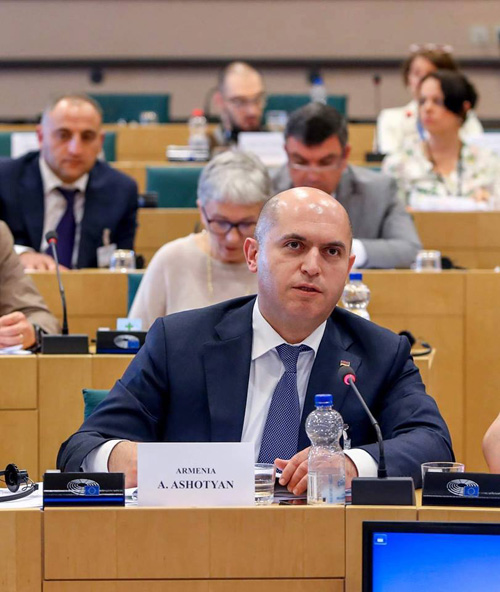MP, Chairman of the Standing Committee on Foreign Relations Armen Ashotyan’s Facebook post
Armenia-European Union (EU). No posture of distressed: internal and external communication languages and cultures are different.
The assessments of Armenia-EU relations should cover a wider scope than just Nikol Pashinyan – Piotr Switalski skirmishes. In general, I do not consider it right to bring the complicated diplomatic issues on the public platform for two reasons. First of all, this testifies to the failure of the negotiation process, and second, it hardly contributes to the solution of the problem. Moreover, the government made two important omissions during this period.
First, it did not accept my suggestion and did not include the Comprehensive and Enhanced Partnership Agreement (CEPA) in the new government’s plan losing the chance to send a clear and strong signal to the EU, and then the visit to Brussels did not capitalize on the promise of starting the visa liberalization dialogue in a timely manner, which did not require money and was entirely possible within the framework of a political decision, taking into consideration certain interest in the new leadership of Armenia after the change of power.
Obviously, the Republic of Armenia should not change its geopolitical position, and breakthrough developments in relations with the EU should not be linked with our membership to the Collective Security Treaty Organization (CSTO) and the Eurasian Economic Union (EAEU). Therefore, in order to continue the story of success, we need not sound and resonating statements, but a clear work in the following areas.
- To work with maximum efficiency for the implementation of the Inter-departmental Commission responsible for CEPA.
- Declaring the ongoing processes in Armenia democratic for the inner audience, we should show a clear result to the external audience. The fight against corruption that has become an internal political flag is far from being institutionalized, it is not deep in its mechanisms, is selective, not preventive, and cannot have long-term effects on Europeans.
- Hard-work and daily efforts are needed to make visible and tangible results in implementing the EU’s MORE for MORE principle. As said before, the reform plan should be implemented to the maximum, working towards increasing the volumes of support based on measurable and accurate results. While at the moment, the Armenian government has even no CEPA implementation action plan.
- Finally, it is important to be aware of the EU’s financial mechanisms and institutes. Currently, Brussels has been actively discussing the project of budget planning and the introduction of new financial instruments in 2021-2028. Armenia should start securing its proper place there from today.
P.S. No posture of distressed should be made: you have to clearly realize that the internal and external languages and cultures are different, and that work is assessed not by promises but by clear results.



















































